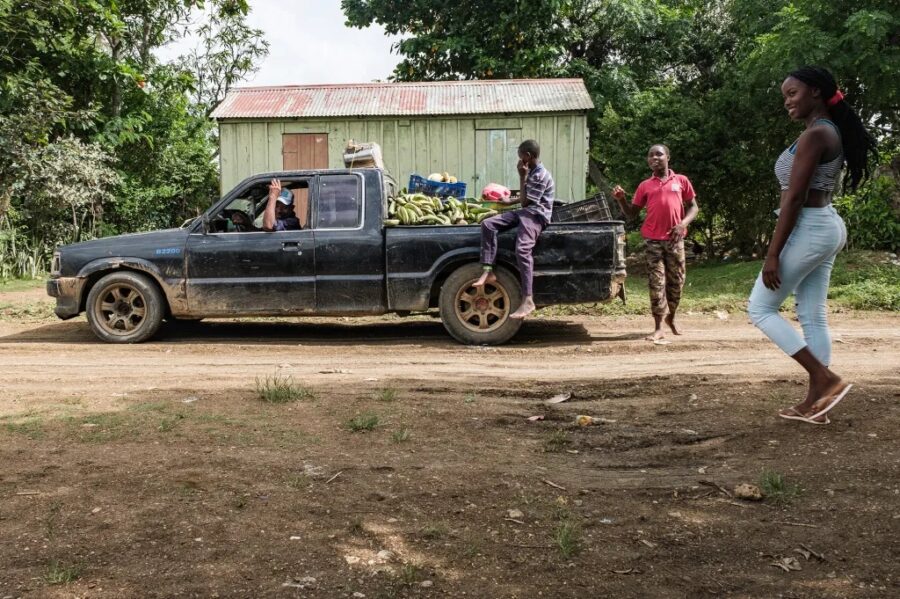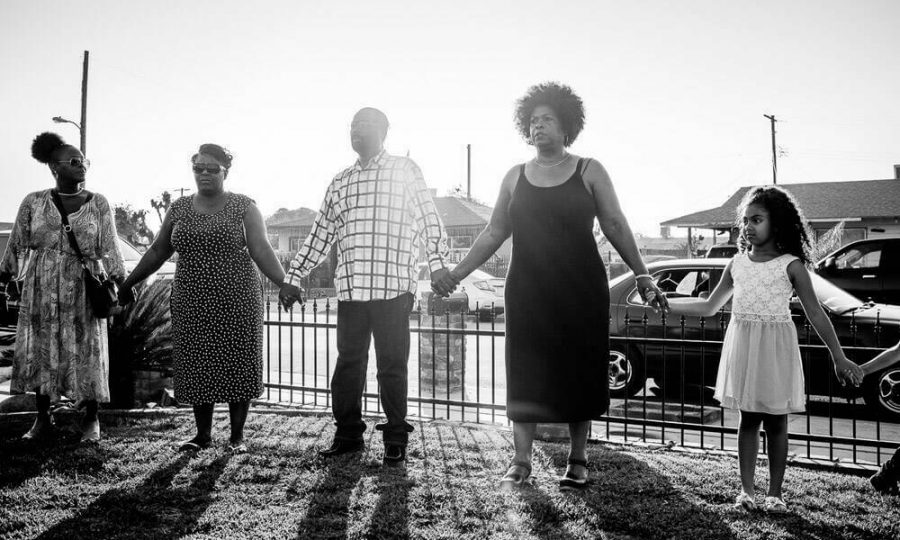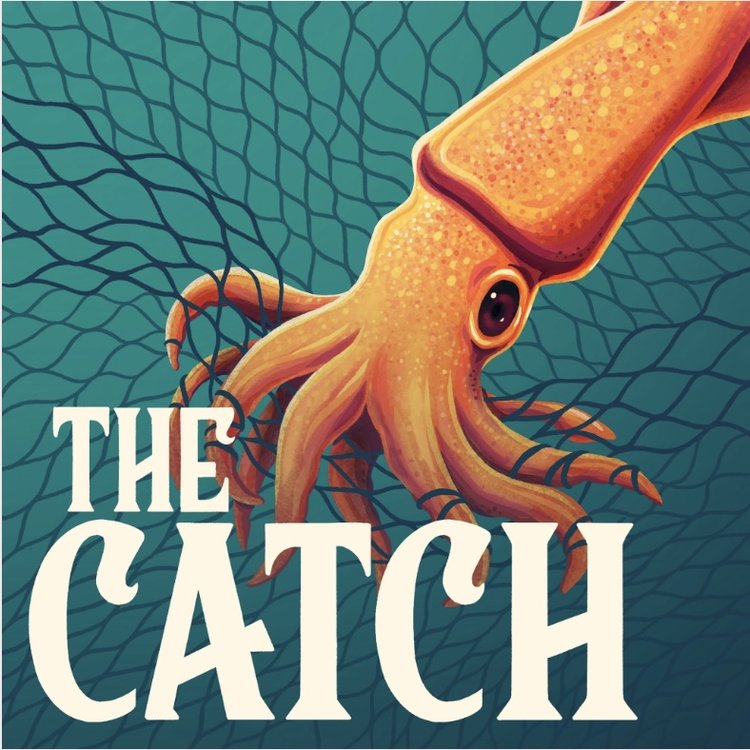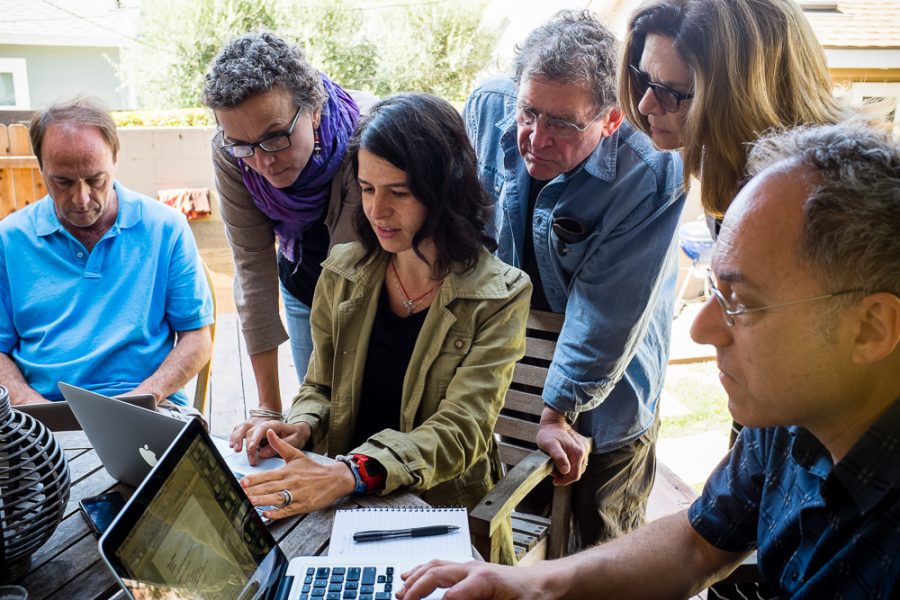In an article for the Sierra Club, Ruxandra Guidi looks at the connections between a 2019 massacre at a Walmart in El Paso, Texas, and a history of racism in mainstream environmental movements. The Walmart killer cited the “great replacement theory” and blamed Latinos for destroying the environment. Ruxandra argues that this modern “eco-fascist” was not the first to make the claim that poor brown people were an environmental threat.
US bans sugar imports after probe

U.S. Customs and Border Protection has blocked shipments of raw sugar from a top Dominican producer after finding indications of forced labor at its Caribbean plantation. The federal probe followed a two-year investigation led by Homelands’ senior producer Sandy Tolan and Haitian-Dominican journalist Euclides Cordero Nuel for Reveal from The Center for Investigative Reporting and Mother Jones.
Sugar from the Central Romana Corporation’s cane fields finds its way into major U.S. brands, including Domino and Hershey. Tolan and Cordero’s reporting won an Overseas Press Club award in 2021.
Guards sow fear in sugar camps
In an article published by the investigative news service The Intercept, Homelands’ Sandy Tolan and his reporting partner Euclides Cordero Nuel document charges of abuse by private security guards hired by the giant Dominican sugar exporter Central Romana.
Workers describe how heavily armed bands of masked men descend on labor camps in the middle of the night and forcibly evict residents. Many of the victims are undocumented laborers from Haiti. In some cases, the night raids appear to be the company’s way of informing older workers that their services are no longer needed.
Tolan and Cordero Nuel won a 2021 Overseas Press Club Award for their reporting on alleged labor abuses by Central Romana. Their earlier reports appeared in Mother Jones and on the podcast and public radio program Reveal. In response to their reporting, the chairman of the U.S. House Ways and Means Subcommittee on Trade called for a “swift and thorough investigation” into the labor practices of Dominican sugar producers.
Maritza Félix is Cecilia Vaisman awardee

Photo and article courtesy of Northwestern Medill
Maritza Félix is the recipient of the 2022 Cecilia Vaisman Award from Northwestern University Medill School of Journalism, Media, Integrated Marketing Communications and the National Association of Hispanic Journalists. Félix is a freelance journalist, producer and writer in Arizona. She is the founder of Conecta Arizona, a news-you-can-use service in Spanish that connects people in Arizona and Sonora primarily through WhatsApp and social media. She is the cofounder, co-producer and co-host of Comadres al Aire and the executive producer and host of Cruzando Líneas.
The Vaisman award honors an individual working in audio or video journalism who works every day to shed light on the various issues affecting Hispanic and Latinx communities inside and outside the United States and is an active member of the NAHJ. It is given jointly by NAJH and Medill and includes a $5,000 cash prize. The award is named for Medill faculty member Cecilia Vaisman who died in 2015.
“The work that Maritza has done in the Latinx community to fight misinformation about the pandemic has undoubtedly saved lives, and the relationships that she is building in her community have helped to strengthen their trust in journalism,” said Medill Dean Charles Whitaker. “For these reasons and more, I am delighted to honor her with the 2022 Cecilia Vaisman Award.”
Félix’s nomination was reviewed and selected by a jury of Medill and NAHJ representatives, including members of the NAHJ Chicago chapter. The award criteria was determined by the jury.
“Border journalists who work in Spanish fight against the odds to show that our narratives, our voices and our accents matter,” said Félix. “Non-traditional, community-inspired journalism takes time, perseverance and a genuine commitment to two-way communication. This award helps to shine a light on what we have achieved at Conecta Arizona. At a time when public confidence in the news media is eroding, we have built a community that trusts us to bring them honest and reliable information. Our community knows that we listen and respond to their needs and concerns, whether it’s in our daily cafecito on WhatsApp, or our weekly radio call-in show. We don’t assume what our audience needs, they tell us. We don’t shy away from controversial topics, we uphold the highest standards of journalism ethics and excellence, and we treat everyone with respect. We are a Spanish-language news and information service for Spanish-speakers on both sides of the U.S.-Mexico border. I’m so proud of the journalism we do con acento y con talento.”
Félix’s work has been published in major newspapers in Mexico and other countries and broadcast on Univision and Telemundo. She is an independent journalist whose work appears in The Nation, The Hechinger Report, Organización Editorial Mexicana, Channel 4 in the U.K., Feet in 2 Worlds, Slate, The Americano, Proyecto Puente, Uniradio Noticias, Telemax, and Prensa Arizona. She hosted the documentary “Mysteries of Faith” for Discovery Channel and contributed as producer to “The Wall,” a worldwide investigative documentary for Rondo Media in the UK. She has worked as special project producer for Al Jazeera and was the investigative producer for award-winning special reports for Channel 4 in U.K.
“As a trailblazing NAHJ member and palabra. contributor, we are thrilled to announce Maritza L. Félix as the 2022 Vaisman award recipient,” said NAHJ National President Yvette Cabrera. “Maritza shares the same tenacious spirit and innovative approach that Cecilia had for multifaceted storytelling that reflects our community’s diversity.”
In 2011 Félix was named one of 40 under 40 Arizona Hispanic Leaders by Chicanos Por La Causa in recognition of her influential work in the state. Félix has won five Emmys and is the recipient of the inaugural award for Best Chronicle Written in the US by Nuevas Plumas. She also has won multiple awards from the Arizona Press Club. In 2012 and 2013 the Phoenix New Times named Félix Best Spanish-Language Journalist in Arizona.
Félix’s work will be highlighted during an award ceremony hosted by Medill on Monday, October 3, 5:30-6:30 CT, in partnership with NAHJ.
Register for the 2022 Cecilia Vaisman Award Presentation and Discussion
The Territory opens in theaters

The Territory, an immersive documentary that chronicles the efforts of a small Indigenous group in Brazil to defend its land against encroachment by peasant farmers, opens on August 19 at cinemas in New York, Los Angeles, Santa Monica, Seattle, Austin, Vancouver, and Toronto. It will screen in more than 100 cities around the world beginning August 26.
Check here for showtimes near you.
The film is distributed by National Geographic Documentary Films. It won two awards at the 2022 Sundance Film Festival and has won several more at festivals worldwide.
Homelands Productions served as fiscal sponsor, helping the filmmakers raise grant money to provide cameras and training to members of the Uru-eu-wau-wau group. Footage shot by the Uru-eu-wau-wau was crucial to the film’s narrative, and the training and equipment have enabled the group to continue to document its situation and share its story with policy makers and the public.
Homelands has been reporting on land and Indigenous rights issues in the Amazon since the early 1990s.
Notre Dame features Guerra’s peace work

A profile on the website of the Kroc Institute for International Peace Studies at the University of Notre Dame looks at Bear Guerra‘s career documenting globalization, human rights, social justice, and environmental justice around the world. Bear, a member of the Homelands collective who serves as the photo editor for the publication High Country News, graduated from the Kroc program in 1995.
Bear and his wife, board president Ruxandra Guidi, founded and run the independent multimedia production company Fonografia Collective. Read the entire article here.
Tracking squid for clues to ocean health

In the US, when people hear about squid, they might only think of fried calamari. Elsewhere around the world, though, the species is an important staple, a way to earn a living, and a sign of the health of the ocean.
This summer, Homelands Productions’ producer Ruxandra Guidi teamed up with Foreign Policy to produce and host a new podcast: The Catch. The six-episode series offers a behind-the-scenes look at the current state of global fishing by tracking squid—from the waters off the coast of Peru to the processing plants, the supply chain, the restaurants, and finally our plates.
Follow and listen here. Graphic courtesy of Foreign Policy.
Homelands launches legal defense fund

In response to alarming increases worldwide in the number of journalists being arrested in the line of duty, the board of Homelands Productions has established the Public Interest Reporting Defense Fund (PIRDF). The fund is intended for journalists who need help paying legal fees and related costs incurred as a consequence of being arrested while doing their jobs, or those who are facing lawsuits filed against them because of their reporting.
The Public Interest Reporting Defense Fund provides a mechanism for donors who may be interested in a particular case, or in First Amendment issues in general, to make tax-deductible donations to help defray journalists’ legal expenses. Although these donors will be contributing to the fund, and not directly to an individual reporter, Homelands’ online donation form allows them to indicate which case or cases they would like to support.
Applications are reviewed by the Homelands board. You may find information on applying and donating here.
See also: Dutton Author Alan Weisman Co-Founds the Public Interest Reporting Defense Fund
